Azure Cosmos DB Blog
The latest news, updates and technical insights from the Azure Cosmos DB team
Latest posts
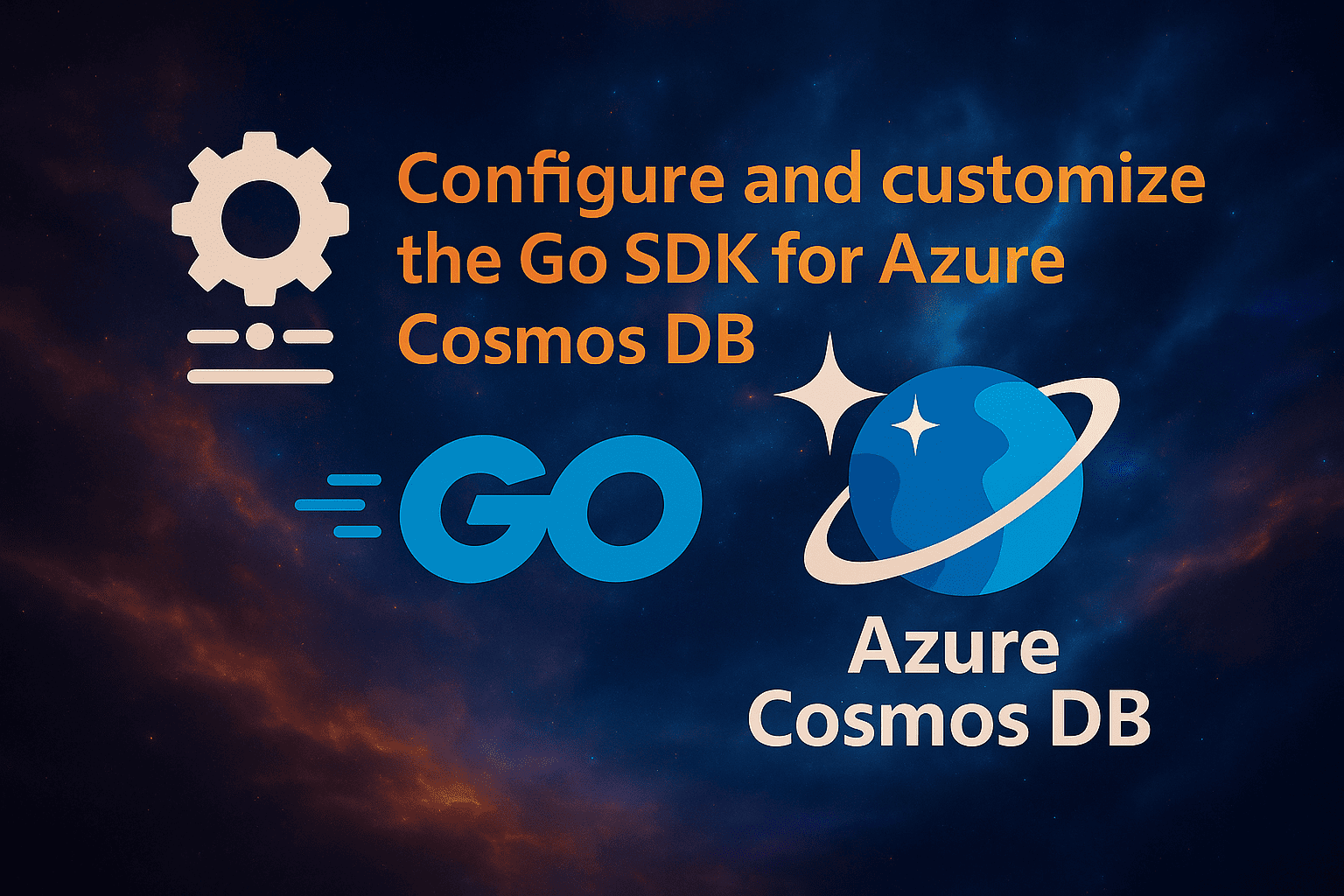
Build reliable Go applications: Configuring Azure Cosmos DB Go SDK for real-world scenarios
When building applications that interact with databases, developers frequently encounter scenarios where default SDK configurations don't align with their specific operational requirements. They need to customize SDK behavior to address real-world challenges like network instability, performance bottlenecks, debugging complexity, monitoring requirements, and more. These factors become even more pronounced when working with a massively scalable, cloud-native, distributed database like Azure Cosmos DB. This blog post explores how to customize and configure the Go SDK for Azure Cosmos DB beyond its default settin...
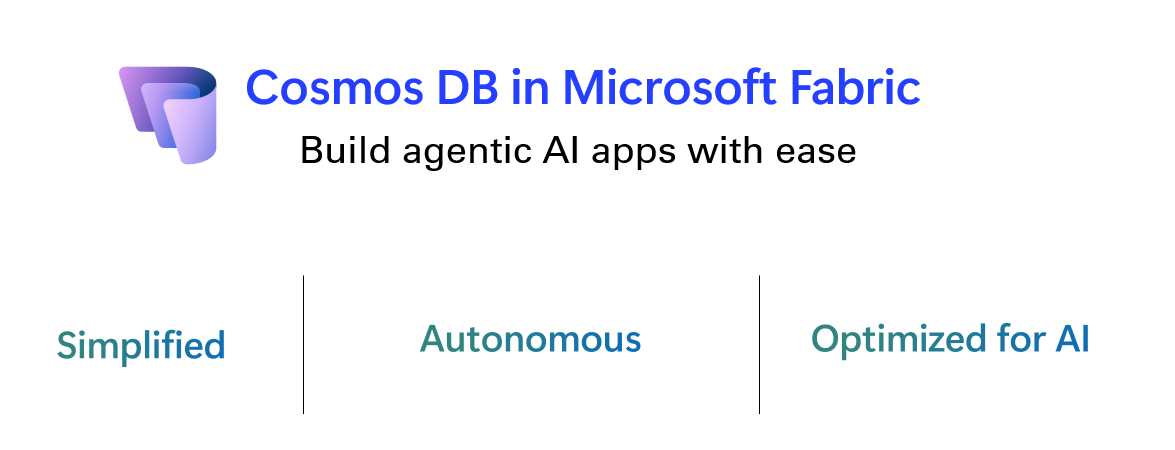
Announcing Cosmos DB in Microsoft Fabric (Preview) with New Capabilities!
We’re excited to unveil the open Public Preview of Cosmos DB in Microsoft Fabric, now available to all users! Since our initial announcement at Microsoft Build 2025, we’ve introduced an array of powerful new features to enhance your data workflows. With this release, you can seamlessly access and analyze your operational data across the Fabric ecosystem. Leverage real-time intelligence, Copilot-powered Power BI, and SQL queries in OneLake—all without the hassle of managing multiple services. We’re committed to expanding integration support to help you get even more value from your data in Fabric. Why Cosm...

Building Event-Driven Go applications with Azure Cosmos DB and Azure Functions
The Go programming language is a great fit for building serverless applications. Go applications can be easily compiled to a single, statically linked binary, making deployment simple and reducing external dependencies. They start up quickly, which is ideal for serverless environments where functions are frequently invoked from a cold start. Go applications also tend to use less memory compared to other languages, helping optimize resource usage and reduce costs in serverless scenarios. Azure Functions supports Go using custom handlers, and you can use triggers and input and output bindings via extension bundl...
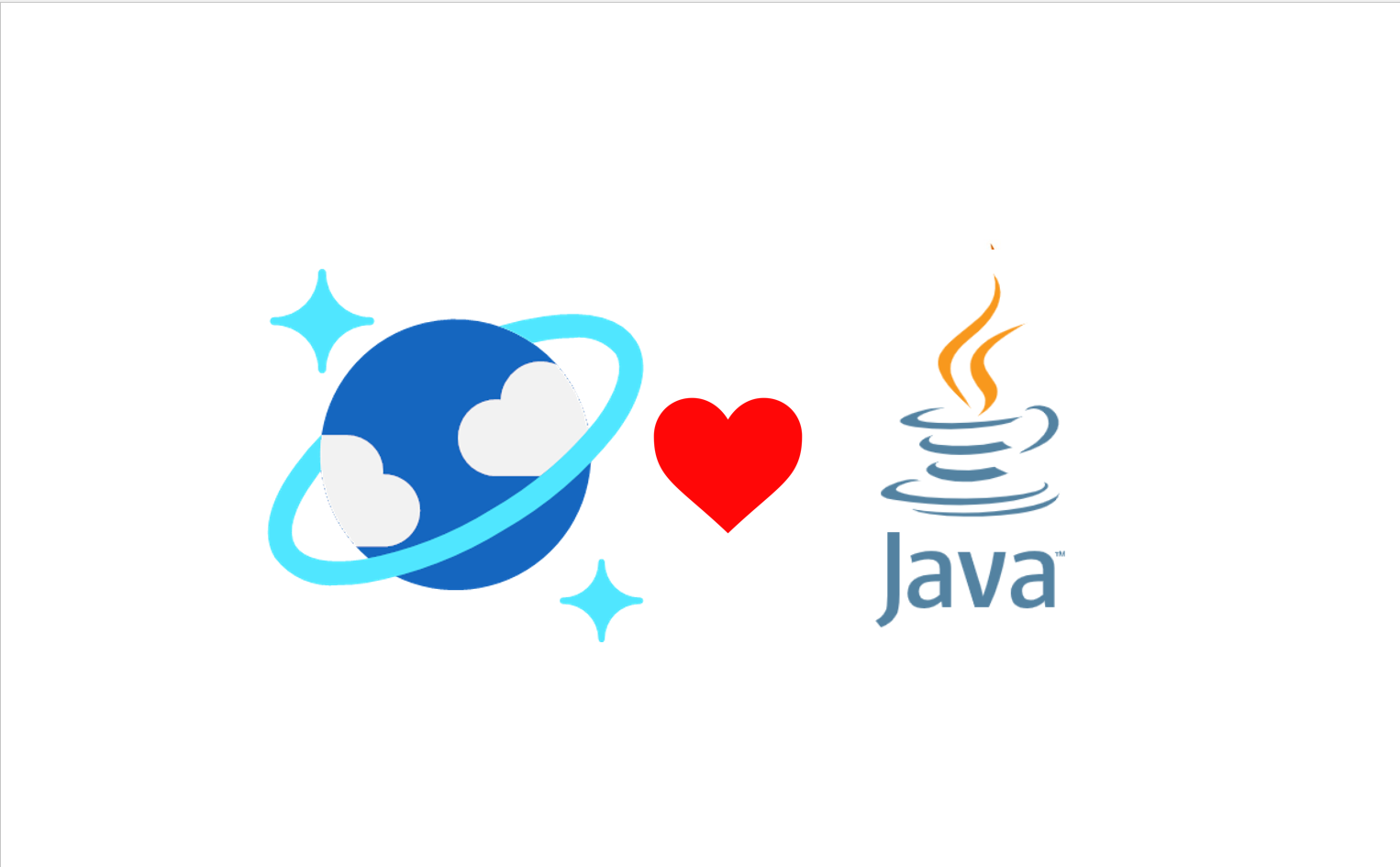
Latest NoSQL Java Ecosystem Updates: June 2024 – June 2025
Welcome to the latest roundup of key updates across the Azure Cosmos DB Java ecosystem! The largest external customers of Azure Cosmos DB API for NoSQL, running some of the biggest and most mission critical workloads in Azure, are primarily Java users! From powerful new AI integrations to improvements in the Java SDK, Spring Data, Spark, and Kafka connectors, the past year has been transformative for developers building cloud-native and AI-powered applications. It's never been easier or more powerful to build modern Java applications on Azure Cosmos DB! Stay tuned for more updates in the future. Happy coding! ...

Building a Modern Python API with Azure Cosmos DB: A 5-Part Video Series
I'm excited to share our new video series where I walk through building a production-ready inventory management API using Python, FastAPI, and Azure Cosmos DB NoSQL. This project demonstrates modern async patterns, clean architecture, and enterprise-grade features like batch operations and optimistic concurrency control. This builds on our Getting Started Series, check out those videos to grasp the fundamentals first. Video 1: Data Modeling with Pydantic In the first video, I dive deep into data modeling using Pydantic v2, showing how to create robust, type-safe models with built-in validation. The...
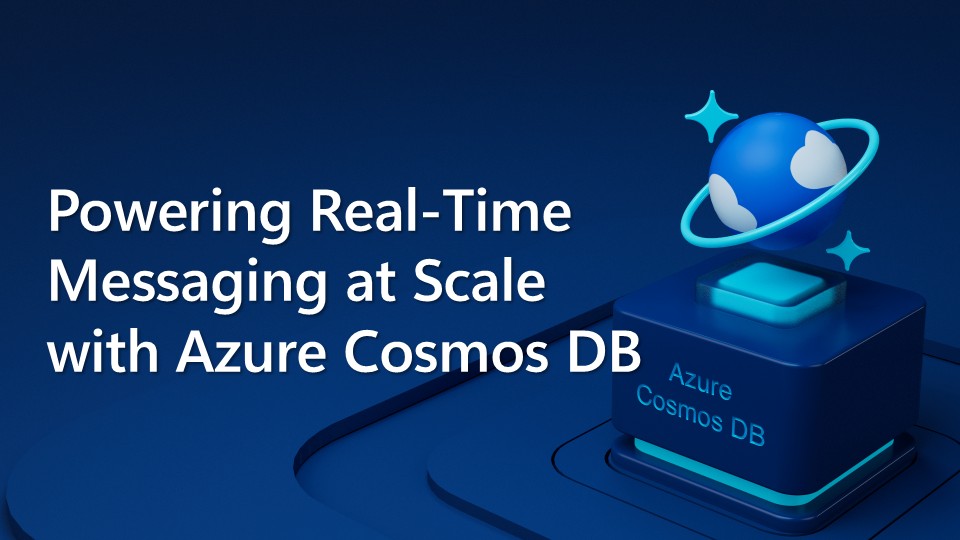
Powering Real-Time Messaging at Scale with Azure Cosmos DB
Microsoft Teams, Copilot, Azure Communication Services and many other product offerings from Microsoft, rely on a unified messaging platform that powers real-time communication and collaboration at an unprecedented scale. This messaging platform has become critical for enabling boundary-less collaboration, supporting hundreds of millions of users worldwide. To ensure global discovery, durable storage and performance needed for real time communication, the messaging platform relies on Azure Cosmos DB as one of its data storages. It has data distributed in most Azure regions, has several Petabytes of data and perfo...
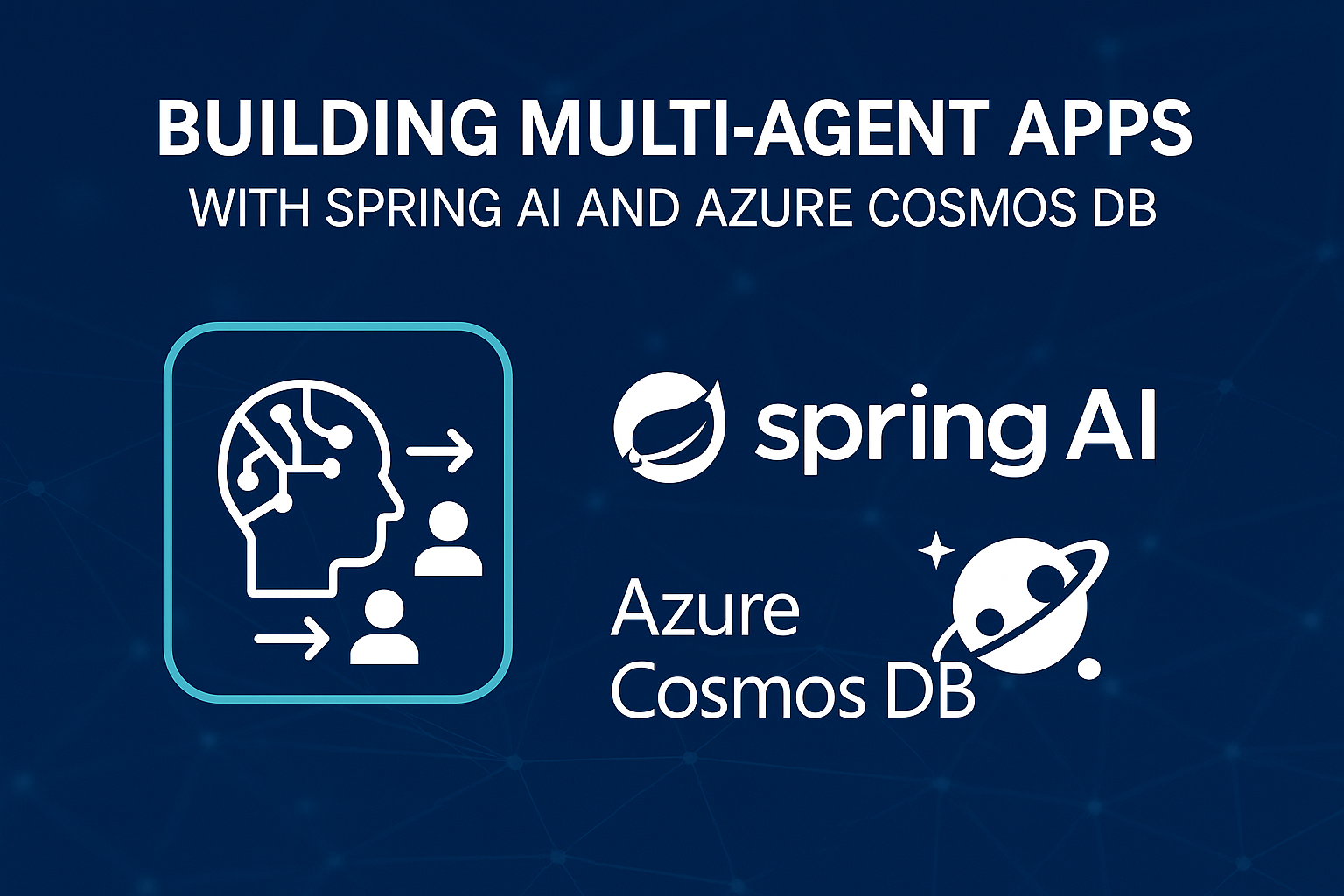
Building Multi-Agent AI Apps in Java with Spring AI and Azure Cosmos DB!
As AI-driven apps become more sophisticated, there's an increasing need for them to mimic collaborative problem solving - like a team of domain experts working together. Multi-agent apps offer exactly that: collections of specialized agents that cooperate to handle complex tasks. But to make them production-grade, you need more than just clever prompts - you need structure, orchestration, memory, and insight. In this blog, we will walk through the multi-agent-spring-ai sample - a full-stack example of how to build a custom multi-agent orchestration framework using Spring AI, Azure Cosmos DB, and Azure OpenAI. ...

Azure Cosmos DB TV – Everything New in Azure Cosmos DB from Microsoft Build 2025
Microsoft Build 2025 brought major innovations to Azure Cosmos DB, and in Episode 105 of Azure Cosmos DB TV, Principal Program Manager Mark Brown sits down with Kirill Gavrylyuk, Vice President and GM of Azure Cosmos DB, to break it all down. Whether you're developing AI-native apps, building with MongoDB, or just looking for better performance and observability, this episode covers all the latest updates—designed to help developers build faster, scale smarter, and integrate AI more seamlessly. Let’s recap the key features and announcements covered in the episode and point you to the full Build 2025 sessions to...
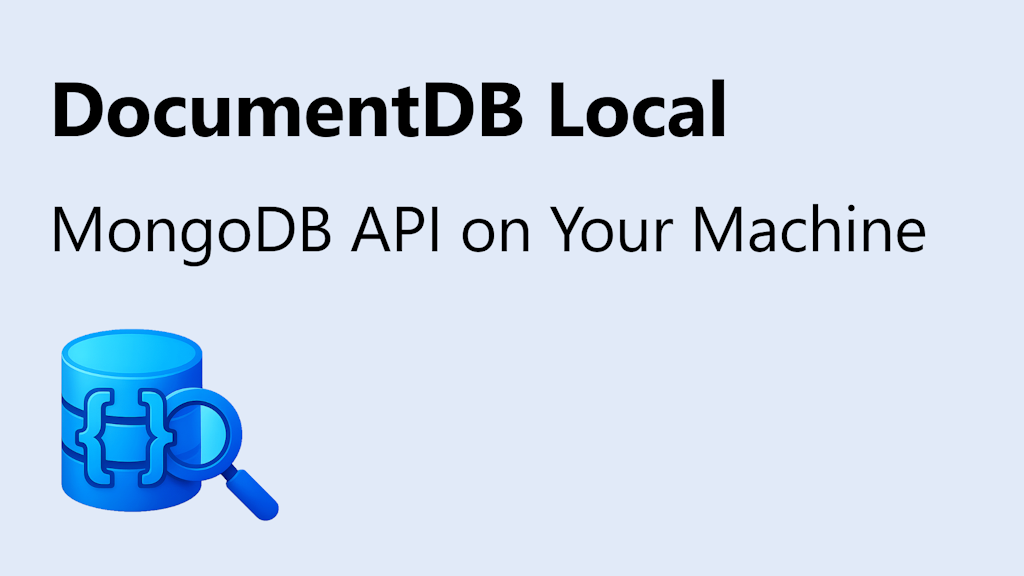
DocumentDB Local – MongoDB API on Your Machine
Introduction DocumentDB Local provides a lightweight, containerized environment that lets you develop and test applications locally using a MongoDB-compatible interface. It’s ideal for prototyping or running integration tests without needing a cloud setup. When paired with the DocumentDB Extension for Visual Studio Code, it creates a focused and consistent local development environment. DocumentDB Local is part of the broader open-source DocumentDB project, a document-oriented database engine built on PostgreSQL. You can explore the project and follow its updates here: https://github.com/microsoft/documentdb ...
